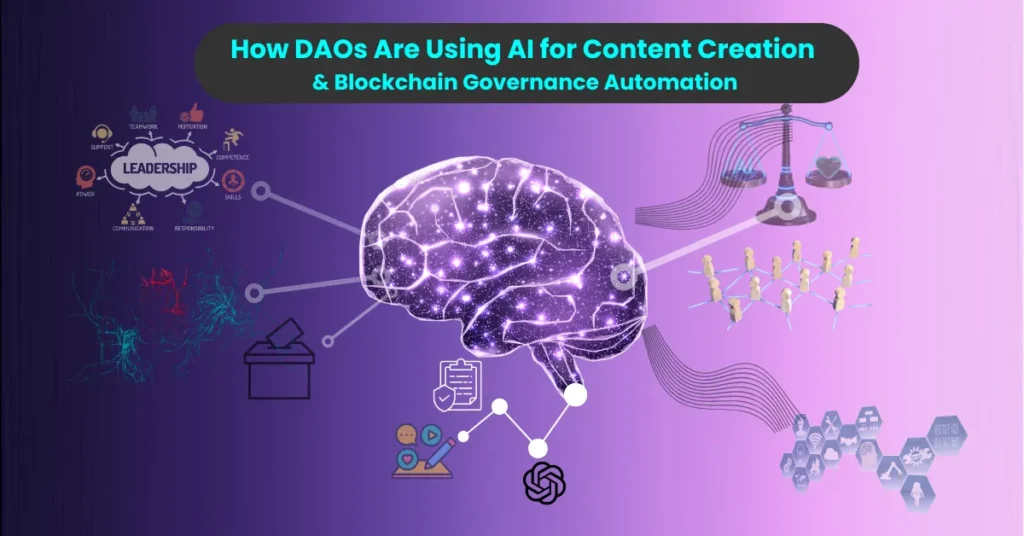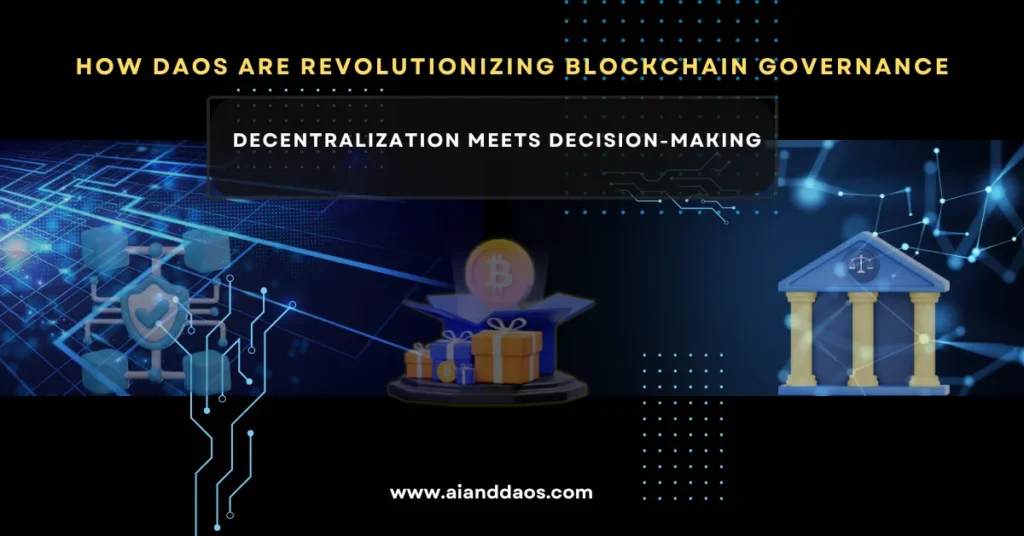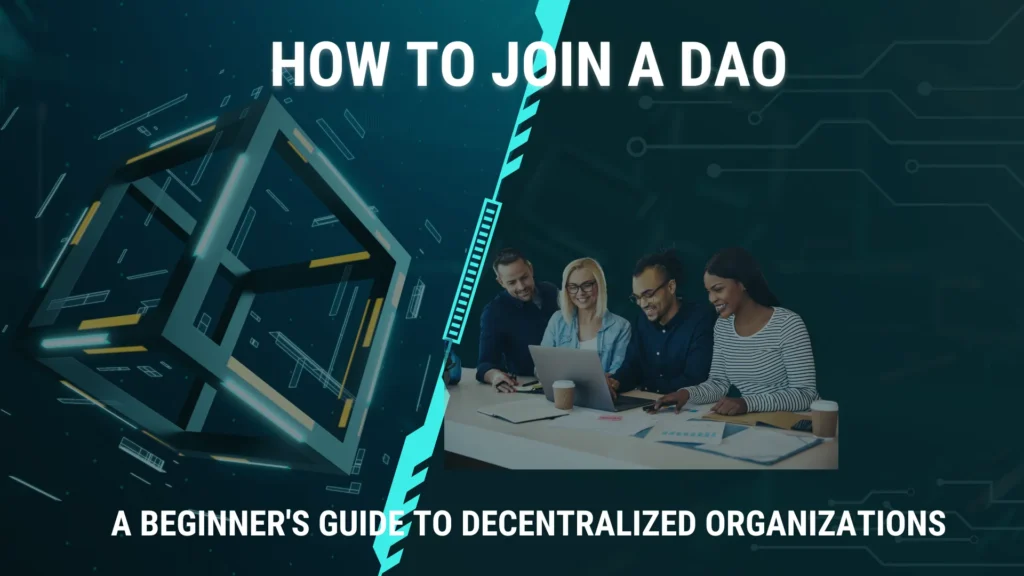Why AI-Powered Content Creation is a Game-Changer for DAOs
AI for content creation is a game-changer for DAOs because it removes the need for centralized content teams—traditional gatekeepers that often slow things down. These teams can limit speed, scalability, and the decentralized spirit of DAOs. By using AI for content creation, DAOs can generate proposals, updates, and marketing materials faster, at scale, and with full community collaboration. It replaces bottlenecks with automation, making communication more efficient and aligned with Web3 values.
AI Streamlines Content Creation: It allows DAOs to generate high-quality content quickly, saving time and resources, so members can focus on governance and strategy.
AI Enhances Content Personalization: By analyzing community feedback, AI can tailor content to better fit the preferences and needs of DAO members, keeping it engaging and relevant.
AI Ensures Scalability: AI automates tasks like content curation and optimization, enabling DAOs to produce large volumes of content efficiently while maintaining quality, helping them grow and remain competitive.
AI in Web3 Content Creation: A Revolution Unfolding.
How AI in DAOs is Transforming Governance: Benefits, Risks, and the Future.
What is AI for Content Creation in DAOs?
AI-powered content creation tools help DAOs generate articles, social media posts, reports, even marketing materials and governance summaries efficiently. By leveraging AI, DAOs can streamline content production, making it faster, more efficient, and cost-effective, all while maintaining high quality.
Some popular AI tools used in DAOs include:
ChatGPT: It helps DAOs generate articles, responses, and community updates quickly, providing content that’s aligned with community interests and engagement goals.
Notion: Used for organizing, collaborating, and documenting content creation processes within a DAO, ensuring transparency and easy access to valuable information.
Jasper: Assists DAOs in automating and enhancing marketing content, like blog posts and social media, based on AI-driven insights and data to drive engagement.
For a detailed breakdown of the best AI tools for DAOs, check out our guide on Top 10 AI Tools for Web3 Content Creation in 2025. If you’re looking for implementation strategies, read How to Implement AI in DAOs: The Future of Smart Governance & Automation.
How DAOs Are Using AI for Content Creation: Real-World Examples
DAOs are increasingly using AI for content creation to streamline their operations and enhance community engagement. Here are a few real-world examples:
- Meme Factory DAO: This DAO leverages AI-powered tools like ChatGPT to generate engaging and relevant social media content, including memes and posts, that resonate with their target audience. By automating content creation, the DAO can keep its community entertained and informed without requiring constant manual effort from members.
- CreatorDAO: Focused on content creators, this DAO uses AI tools like Jasper to assist members in generating high-quality written content for blogs, newsletters, and social media. AI helps creators generate articles faster and optimize them for SEO, allowing the DAO to scale its content production and grow its digital presence.
These examples demonstrate how DAOs are using AI to automate and optimize content creation, improving efficiency, and ensuring that content aligns with the collective vision and values of the community.
Pros & Cons of AI in DAO Content Creation
As DAOs increasingly adopt AI for content creation, the debate around its benefits and risks is heating up. While AI streamlines governance, improves participation, and enhances efficiency, concerns about bias, centralization, and creativity remain. Let’s break down both sides.
Pros: How AI Benefits DAO Content Creation
Faster Content Production
DAOs thrive on decentralized decision-making, but content creation—such as governance proposals, newsletters, and reports—can be time-consuming. AI automates these repetitive tasks, allowing contributors to focus on strategy instead of drafting documents from scratch.
Increased Participation
One of the biggest challenges in DAOs is keeping members engaged. AI-generated summaries of governance meetings and proposals help members stay informed without sifting through hours of discussions. This accessibility boosts participation, ensuring more voices are heard.
Improved Governance & Transparency
AI can structure proposals, categorize discussions, and organize documentation in a way that ensures clarity and consistency. By reducing human error and standardizing processes, AI enhances governance efficiency.
10 Revolutionary Ways AI-Powered Personalization is Reshaping Web3 – Explore how AI is transforming Web3 and DAOs, both positively and controversially.
Cons: Risks & Challenges of AI in DAOs
AI Bias & Fairness Concerns
AI models are trained on existing data, which can introduce biases. If left unchecked, AI-generated proposals or reports may reflect unintended biases, leading to unfair decision-making. The key question: Who ensures AI remains fair and unbiased?
Centralization Risks
DAOs are built on decentralization, but AI tools are often controlled by a few key developers or third-party providers. If an AI system is manipulated—whether through biased training data or intentional design—it could lead to centralization concerns within the DAO.
Lack of Creativity & Human Touch
While AI excels at structuring content, it struggles with originality and nuanced judgment. AI-generated governance proposals or newsletters may feel robotic, lacking the unique human insights that make DAO discussions meaningful.
The Future: How DAOs Can Implement AI Ethically
As AI continues to integrate into DAOs, ethical concerns and governance challenges must be addressed. The future of AI in decentralized governance isn’t about replacing human decision-making—it’s about enhancing it responsibly. Let’s explore how DAOs can adopt AI ethically and effectively.
Hybrid Model: AI as an Assistant, Not a Replacement
The ideal approach is a hybrid model, where AI supports but doesn’t dictate governance. DAOs can use AI for:
✅ Drafting proposals – AI structures content, but humans finalize decisions.
✅ Summarizing governance discussions – AI extracts key points for clarity.
✅ Data-driven insights – AI analyzes trends, but members interpret and act.
By keeping humans in the loop, DAOs ensure AI remains a tool—not an authority.
Ethical AI Governance: Who Audits AI?
AI-generated content in DAOs must be transparent and unbiased. But who ensures fairness? Possible solutions include:
Community-Led AI Audits – DAOs establish AI review committees.
Open-Source AI Models – Transparent AI frameworks ensure accountability.
Bias Detection Tools – Regular audits prevent AI from reinforcing biases.
The key question remains: How can DAOs balance automation with decentralization?
10 Revolutionary Ways AI-Powered Personalization is Reshaping Web3
Predictions for 2030: The Rise of AI-Assisted DAOs
By 2030, AI-assisted DAOs will become the backbone of decentralized decision-making. These next-gen organizations won’t just run on smart contracts—they’ll think, adapt, and optimize in real time using AI.
DAOs will integrate AI for governance recommendations, automated proposal generation, sentiment analysis, fraud detection, and treasury optimization. Instead of relying solely on human voting cycles, AI agents will act as advisors—processing vast data sets, modeling outcomes, and offering smarter paths forward.
This fusion of AI and blockchain will reduce coordination friction, improve efficiency, and allow DAOs to scale globally with minimal human overhead. Communities will spend less time on bureaucracy and more on innovation.
The result? Self-improving, self-governing systems that are agile, transparent, and incredibly resilient. AI-assisted DAOs won’t just manage tasks—they’ll evolve with the communities they serve.
How Revolutionary AI and Blockchain Integration is Transforming DAOs in Web 3.0
FAQs: AI for Content Creation & DAO Success
What does AI mean in the context of content used for DAOs?
The employment of automation tools for the generation, editing, and management of written content such as texts, summaries, and proposals in the operations and activities of the community is referred to as AI for content in DAOs.
How does AI transform content creation for DAOs?
AI technology creates, scales, and automates content, analyzes data to provide insights, personalizes interactions, and summarizes discussions.
In what ways is AI applicable for governance in DAOs?
AI can be used to draft proposals, evaluate voting information, summarize debates, and even automate decision-making in some instances.
What are the opportunities provided by AI content in Web3 for DAOs?
AI enhances the speed of tasks and reduces expenses. It also improves the ease of scaling operations, customizing services, and automating processes to improve workflows.
What are the constraints posed by AI on DAOs?
Concerns regarding alignment of model, control over new security challenges, potential centralization, equity issues, failure of supervision, and the requirement of human intervention all pose difficulties.
What does the advancement of AI mean for DAOs?
There will be more automated processes, advanced AI tools, AI models operating in a decentralized manner, the possibility of collaboration across DAOs, and systems where AI and DAOs function together synergistically.
Powering DAO Success: The AI Content Advantage
In a decentralized world where speed, clarity, and coordination matter, AI for content creation gives DAOs a powerful edge. It eliminates reliance on traditional gatekeepers, enabling communities to generate high-quality proposals, updates, and engagement material—faster and at scale.
By integrating AI tools, DAOs can maintain consistent messaging, boost transparency, and keep their communities informed in real time. This doesn’t just improve efficiency—it strengthens trust and participation.
Ultimately, the AI content advantage empowers DAOs to focus on what matters most: building, innovating, and evolving—together. As Web3 matures, the DAOs that embrace AI won’t just keep up. They’ll lead.



Pingback: AI Content Verification: Ensuring Trust in Web3
Pingback: Will AI Replace Writers? 7 Truths You Must Know [2025]
Pingback: AI Agents in Web3: How Decentralized AI is Powering DAOs